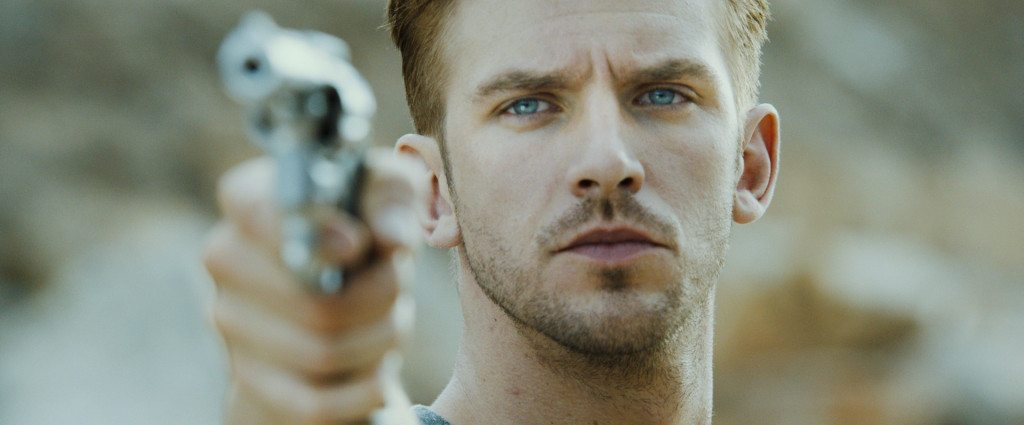American psychos: our obsession with murderers
“Maybe you shouldn’t have tested your procedures on a psychopath,” Maika Monroe’s believably besotted teen throws at Lance Reddick’s chief of military police. “By all accounts he is an ideal soldier,” he replies defensively and guiltily in the wildly entertaining 2011 gem, The Guest (dir. Adam Wingard). The film takes the ‘returning American soldier’ motif and somewhat predictably gives it a ‘sinister twist’.
However, its infusion of a variety of familiar genre beats flesh out the narrative in a thoroughly self-reflective and unpredictable way. Downton Abbey’s Dan Stevens conveys the perfect mixture of lurking emptiness, simmering violence, and pervasive southern charm in his role as David. He arrives at the Peterson household claiming to have been their deceased son’s best friend.
This character can be seen throughout action cinema, a professional gone rogue – killing bad guys to survive. Except here they aren’t the faceless military drones seen in more conventional films. James Bond kills a bunch of people in the name of her Majesty/the name of James Bond when he does his whole rogue thing; Rambo too can probably be seen as the villain of his own films; and the recently concluded (we hope) Taken trilogy’s Bryan Mills mows down every vaguely Eastern European guy that side of the channel in the name of his daughter.
One has to hand it to The Guest for tackling the contradiction between our support for the protagonist and our indoctrinated views on the consequences of death
At the heart of this lack of moral depth is an inherent contradiction. Whilst it allows for the good guys-bad guys scenario that has been drilled into the last few generations of children (a good thing?), it also lends a lack of weight to what is essentially rampart murder (a bad thing, probably).
The desensitised violence in modern popular culture is no revelation at all but is still an unsettling prospect. We have many non-psycho heroes that kill without consequence in the gloriously escapist films of the post-Star Wars world. Take a look at that moment when the plucky Indiana Jones guns down three Nazis with a single bullet.
It’s natural to love escapism. This type of Blockbuster fulfils our desire for power over sex and death, without making us deal with the consequences of any real action. But should we be made to feel these consequences inside of the film? Don’t get me wrong, Indiana Jones is my favourite thing. Ever.
One has to hand it to The Guest for tackling the contradiction between our support for the protagonist and our indoctrinated views on the consequences of death. Not to say every death is felt 100% in the film; in fact, death often takes the form of humour as an extension of the awkwardness of the film’s reality.
The difference here is that the protagonist fulfils the role of both the monster of the b-movie horror pastiche on display, as well as the action ‘hero’. This confusion surrounding the viewer’s line of identification and support for the character is an inversion of a traditional film narrative. As a result, The Guest is engaging as both a fantastically entertaining film teeming with nostalgia, and a film which allows us to engage with Hollywood cinema in an interesting way.



Comments